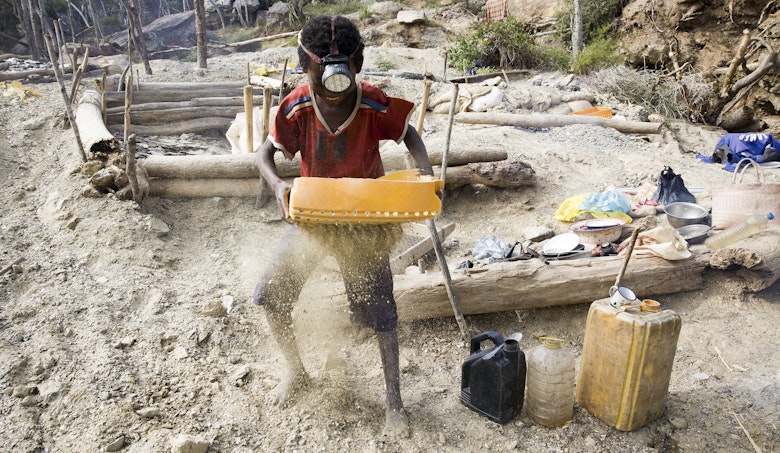Joining Forces for Africa: Acting to end child labour (ACTE) project
Together with the Joining Forces Alliance, composed of the six largest child-focussed international NGOs, Terre des Hommes Netherlands developed the three-year project known as “Joining Forces for Africa (JOFA): Acting to end child labour (ACTE)”. With funding from the European Union(EU), this three-year project (2023 - 2025) aims to contribute to the reduction of child labour targeting its worst forms in Burkina Faso, Madagascar, Mali, and Malawi in line with the Sustainable Development Goals by 2025 - Target 8.7. Terre des Hommes Netherlands is implementing the JOFA ACTE project in Madagascar in close collaboration with Save the Children and local partners. Through interventions in communities in the south of Madagascar and lobby and advocacy at national level we aim to contribute to the reduction of the worst forms of child labour, with a specific focus on child labour in Madagascar´s mica sector.
Philemon Ndremana
Project Manager - JOFA
Background
Madagascar has one of the highest poverty rates in the world. According to the World Bank, 79 percent of the population in Madagascar is living on less than US$1.90 per day. In 2018 it was estimated that 47 per cent of children between 5 and 17 years old in Madagascar are involved in various forms of child labour, with 32% of the children engaged in dangerous working conditions (UNICEF. MICS).
Around 10,000 children are estimated to be working in the mica sector in southern Madagascar, according to the report, “Child Labour in Madagascar’s Mica Sector (2019)” by Terre des Hommes Netherlands and SOMO. Most mica mines are concentrated in the southern regions of Madagascar, which are among the poorest areas of Madagascar. The majority of the population is living on subsistence, rain-fed agriculture as there are not many other sources of income. Their livelihood is becoming more and more difficult due to continuous droughts and food insecurity, exacerbated by climate change. With agriculture options limited many families have turned to mica mining to help their families survive.
The entire household often works together: fathers and adolescent boys dig out mines and excavate mica, while mothers and smaller children carry and classify them and gather scrap mica. Children may start being involved in mica mining as early as five years old. Some children accompany their parents to the mine due to lack of day care or because they cannot go to school for various reasons , while some other children are forced to work and contribute to their family income. Families in the isolated mica mining villages are often lacking access to basic social services, including education, water and health care.
Working conditions in mica mining are harsh for both adults and children. Most of them work without adequate materials for exploitation or personal protective equipment. Many suffer from back pain due to mining, headaches due to the heat and the lack of water or oxygen, and frequent coughs and respiratory problems as well as eye pain caused by very fine mica dust particles. Even though the whole family works under these difficult conditions, their income from mica is minimal, often allowing them to only have one meal a day.
Objectives
The JOFA ACTE project aims to contribute to the reduction of the worst forms of child labour by:
- Strengthening the capacity of children, families and communities to address the worst forms of child labour and improving their knowledge of the risks and alternatives to the worst forms of child labour.
- Strengthening the capacity of local and national mechanisms and systems to prevent, respond to and implement inclusive, gender-sensitive and safe alternatives to the worst forms of child labour.
- Supporting state and non-state actors in their efforts to prevent and reduce the worst forms of child labour, improve coordination, effectiveness, visibility and transparency, and share good practices.
Approach
Through the empowerment of children, parents and community leaders in Taolagnaro district and advocacy at national level we aim to contribute to the elimination of the worst forms of child labour, with a specific focus on the mica mining sector.

